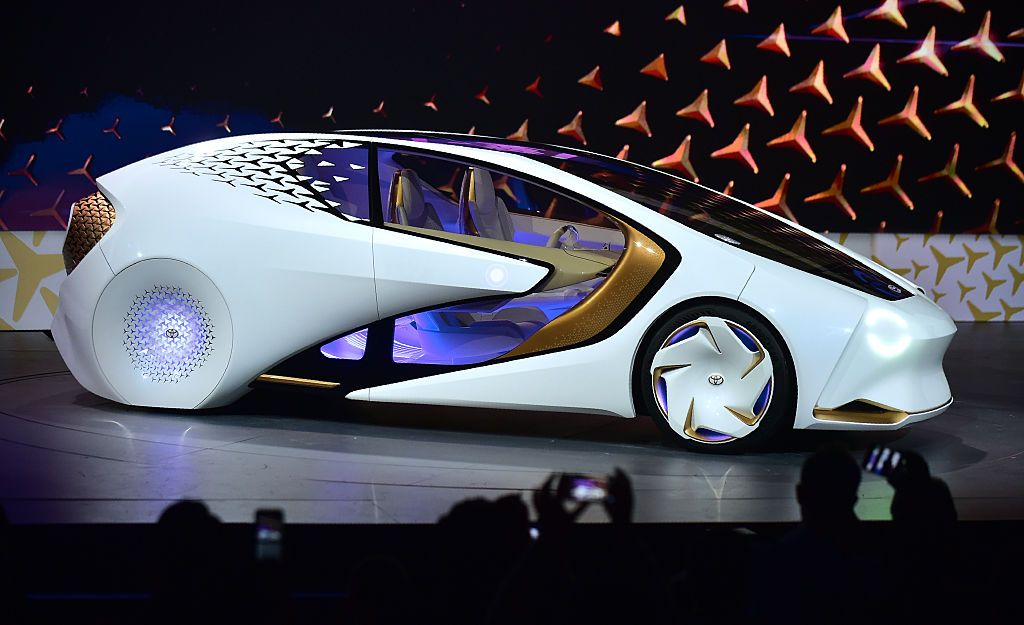Only about 247 front-wheel drive Hotchkiss Grégoire automobiles were built in the early 1950s by the usually conservative Hotchkiss firm, a maker of weapons as well as cars.
Following World War 2, French politicians effectively killed the upper-middle range and luxury segments of the country's automobile industry. Skilled craftsmen working at coachbuilding firms along with assembly line workers lost their jobs thanks to the compassionate social theories rattling around France in those days.
Hotchkiss, in what amounted to a last-ditch effort to stay in the automobile business, hired noted engineer and front-wheel drive proponent Jean-Albert Grégoire to create a different kind of Hotchkiss. The project failed, as is described here.
If you live in North America and want to view two of these rare cars, a place to visit is the fascinating Tampa Bay Automobile Museum that features front-wheel drive and rear-engine cars, mostly from Europe.
Below are some photos I took there in 2017 along with some other Hotchkiss Grégoire images.
An early (Spring 1950) version of the Hotchkiss Grégoire. It is a six-window sedan, but production cars had only four windows. At the right are MM. de Gary and Grégoire.
A publicity photo of the same car.
A 1951 Hotchkiss Grégoire. I do not know the setting or the source of this photo. Like most recent front-wheel drive cars, it has considerable front overhang. The windshield is raked at an angle typical of today's cars, but unusual in the early '50s.
Here is the Hotchkiss Grégoire sedan at the Tampa Bay museum (Web site description here). Cars are tightly packed at the museum, so it was difficult to get decent photos. I had to use a wide-angle setting.
Two views of its rear design. By 1950 American standards, the styling is obsolescent, looking more like a U.S. 1942 model. Nevertheless, the design is pleasing, though not outstanding.
This is the museum's Web image of its Hotchkiss Grégoire Coupe, one of seven built. The body is by Henri Chapron (indicated in the amber patch by the radio antenna). More about this car can be found here.
For some reason many cars had raised hoods and award ribbons, making documentary photography impossible from certain angles.
Rear 3/4 view. The three-segment wraparound backlight is taken from 1950-vintage U.S. hardtop convertible styling. The C-pillar seems too narrow, and the unusual combination of the back window design with a fastback body shape isn't successful either. I credit Chapron for making an interesting try.
Only about 247 front-wheel drive Hotchkiss Grégoire automobiles were built in the early 1950s by the usually conservative Hotchkiss firm, a maker of weapons as well as cars.
Following World War 2, French politicians effectively killed the upper-middle range and luxury segments of the country's automobile industry. Skilled craftsmen working at coachbuilding firms along with assembly line workers lost their jobs thanks to the compassionate social theories rattling around France in those days.
Hotchkiss, in what amounted to a last-ditch effort to stay in the automobile business, hired noted engineer and front-wheel drive proponent Jean-Albert Grégoire to create a different kind of Hotchkiss. The project failed, as is described here.
If you live in North America and want to view two of these rare cars, a place to visit is the fascinating Tampa Bay Automobile Museum that features front-wheel drive and rear-engine cars, mostly from Europe.
Below are some photos I took there in 2017 along with some other Hotchkiss Grégoire images.
An early (Spring 1950) version of the Hotchkiss Grégoire. It is a six-window sedan, but production cars had only four windows. At the right are MM. de Gary and Grégoire.
A publicity photo of the same car.
A 1951 Hotchkiss Grégoire. I do not know the setting or the source of this photo. Like most recent front-wheel drive cars, it has considerable front overhang. The windshield is raked at an angle typical of today's cars, but unusual in the early '50s.
Here is the Hotchkiss Grégoire sedan at the Tampa Bay museum (Web site description here). Cars are tightly packed at the museum, so it was difficult to get decent photos. I had to use a wide-angle setting.
Two views of its rear design. By 1950 American standards, the styling is obsolescent, looking more like a U.S. 1942 model. Nevertheless, the design is pleasing, though not outstanding.
This is the museum's Web image of its Hotchkiss Grégoire Coupe, one of seven built. The body is by Henri Chapron (indicated in the amber patch by the radio antenna). More about this car can be found here.
For some reason many cars had raised hoods and award ribbons, making documentary photography impossible from certain angles.
Rear 3/4 view. The three-segment wraparound backlight is taken from 1950-vintage U.S. hardtop convertible styling. The C-pillar seems too narrow, and the unusual combination of the back window design with a fastback body shape isn't successful either. I credit Chapron for making an interesting try.





















EmoticonEmoticon